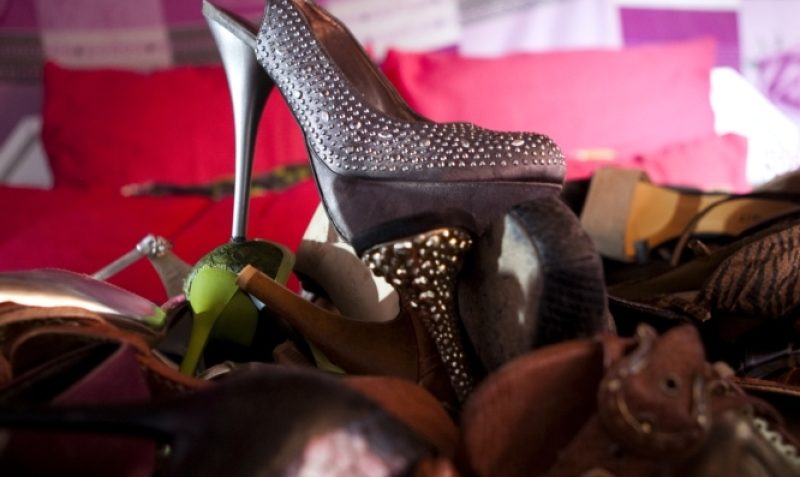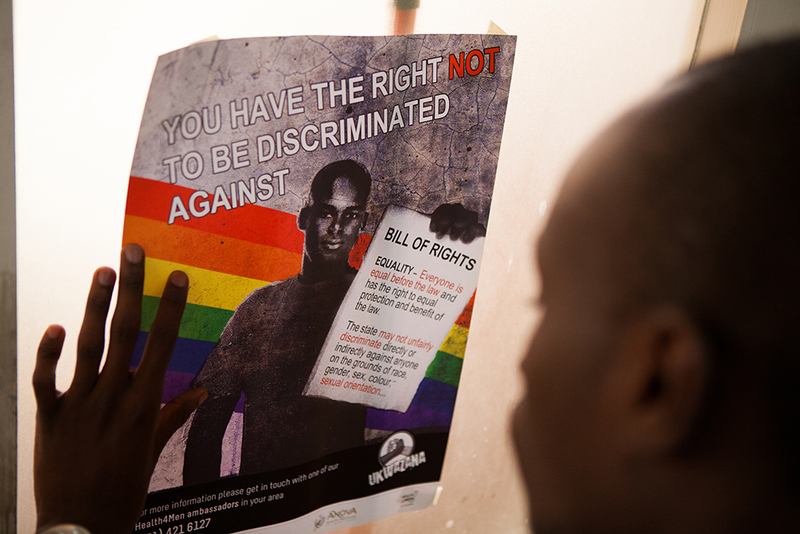Why do we need a Rapid Response Fund for LGBT and MSM groups?

Across the world, LGBT people and MSM frequently find their rights violated when expressing their true sexual and gender identities.
Ross Reeves is an Advisor of the Rapid Response Fund at the Alliance.
Sephora cuts a tall, slender figure with an acute sense of individual style which at any time may blur, challenge, or defy gender norms. The overall effect is something quite striking.
When we first met in Malawi some years ago, it was apparent that her use of cosmetics and jewellery was seen as confrontational by members of her community who once knew her as a boy.
But for Sephora, her choice to live as woman was never in doubt.
“The thing is that, even when I was wearing boy clothes […] my face was born like a woman, still I would walk like a woman, so when I would wear those clothes people would still criticise me. So I was like ‘Ah! Let me change myself and live how I want to be.’”
Yet Sephora’s readiness to express her preferred gender was in stark contrast to her small town’s growing disapproval. Earlier this year things reached crisis point. Having already been rejected by her church, and losing her job, Sephora soon found herself without friends, family, or a safe place to live. What’s worse, far from protecting her human rights, the state actively violated them. As Sephora explained to me:
“I’m tired of people talking and humiliating me with their false stories …. I think it would be much easier to commit suicide… some [people] started texting threat messages to me to say they will kill me and will come at my grandfathers to kill [me]. I was chased out of my grandfather’s with nowhere to go, [then] I was arrested on the streets. I have no place to go … It was bad. As you know, being transgender I was insulted and abused by the police.”
I have no place to go … It was bad. Being transgender I was insulted and abused by the police
Structural violence writ large
Sephora’s case is sadly not an isolated one. Across the world, Lesbian, Gay, Bisexual and Transgender (LGBT) people, as well as other men who have sex with men (MSM), frequently find their rights violated simply as a result of expressing their true sexual and gender identities. In Africa, some 34 countries out of 54 maintain laws that criminalise consensual same-sex sexual practices between men, with 24 of these applying to sexual relations between women also. Comparatively, the legal status of LGBT people and MSM in Latin America and the Caribbean has made great progress in recent years, and yet this same region shows the highest levels of violence and murder against these populations.
While these human rights violations are a travesty in themselves, such discrimination is also largely responsible for heightened levels of HIV infection within certain sectors of the MSM and LGBT communities. HIV infection rates amongst gay men and other MSM are 19 times higher than the global average, while shocking trends such as the so-called corrective rape of lesbians and women who have sex with women have also heightened the risk of HIV infection amongst these often overlooked groups. Trans people too face multiple forms of discrimination, such as a lack of employment opportunities. In such instances, sex work in unregulated, hostile environments often emerges as one of few viable employment options available, yet also increases the potential for exposure to the disease.
Discrimination is largely responsible for heightened levels of HIV infection within certain sectors of the MSM and LGBT communities
In short, human rights violations are at the very core of this global imbalance in HIV infection rates. Marginalisation leads to a multitude of structural barriers preventing easy access to condoms and lubricants, information on sexual health, and testing and treatment services. Discrimination can also be the cause of homelessness, loss of familial and peer support, psychological distress, and substance and alcohol misuse, all of which may indirectly impact upon an individual’s ability to protect themselves against HIV.

Discrimination can also be the source of prejudicial legislation, such as so-called anti-sodomy laws, which both criminalises same-sex practices and prevents LGBT and MSM organisations and services from operating legally and therefore effectively. These laws can be at their most damaging when they have been dormant in a country’s statute book for decades, only to be reignited at a time of unprecedented homophobia and transphobia.
All of these factors can have tangible consequences for an individual’s ability to protect themselves from HIV. It stands that the greater the severity and volume of such human rights violations, the greater the likelihood that the epidemic will remain one of the world’s most significant healthcare challenges.
The Rapid Response Fund
Many organisations carry out inspiring work in their attempts to address discrimination of MSM and LGBT people. Yet all too often they find their efforts curtailed by cumbersome bureaucratic systems, limitations to their geographic reach and/or financial resources. Never are these constraints felt more acutely than in times of crisis, whether that be at the individual, organisational or national level.
The Alliance is now launching a Rapid Response Fund to support organisations to respond to these challenges. LGBT and MSM focused civil society organizations in 29 countries across Africa, Latin America and the Caribbean that are considered hostile to LGBT and MSM human rights can apply for grants to protect the health and safety of, and access to HIV services for, LGBT and MSM.
For more information on the fund, and how to apply, visit the Rapid Response Fund.
This article was written as the International HIV/AIDS Alliance, before we changed our name to Frontline AIDS.
Tags
Human rightsLGBTRapid Response Fund


